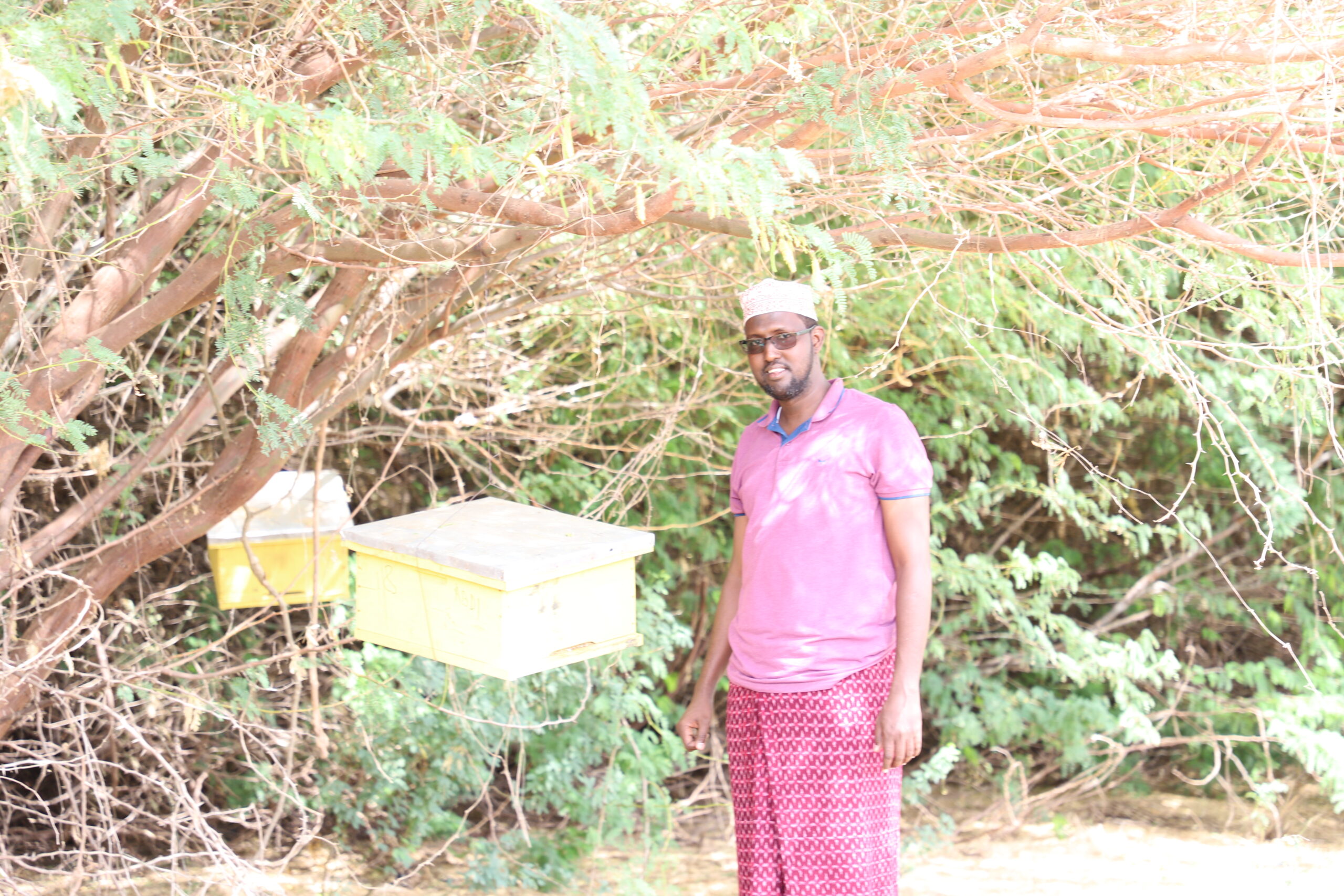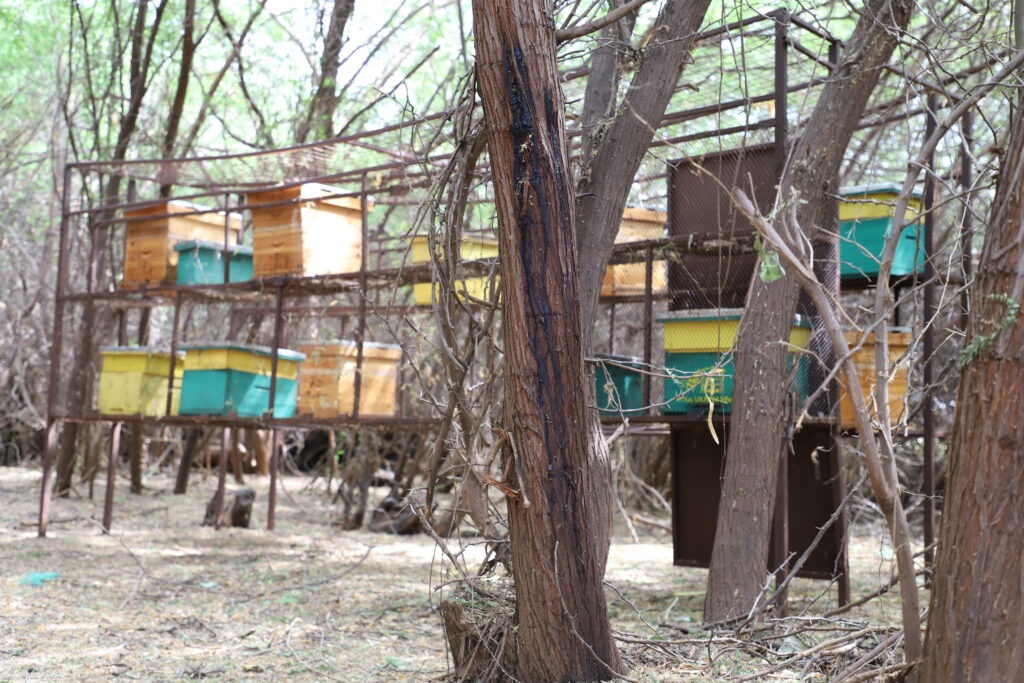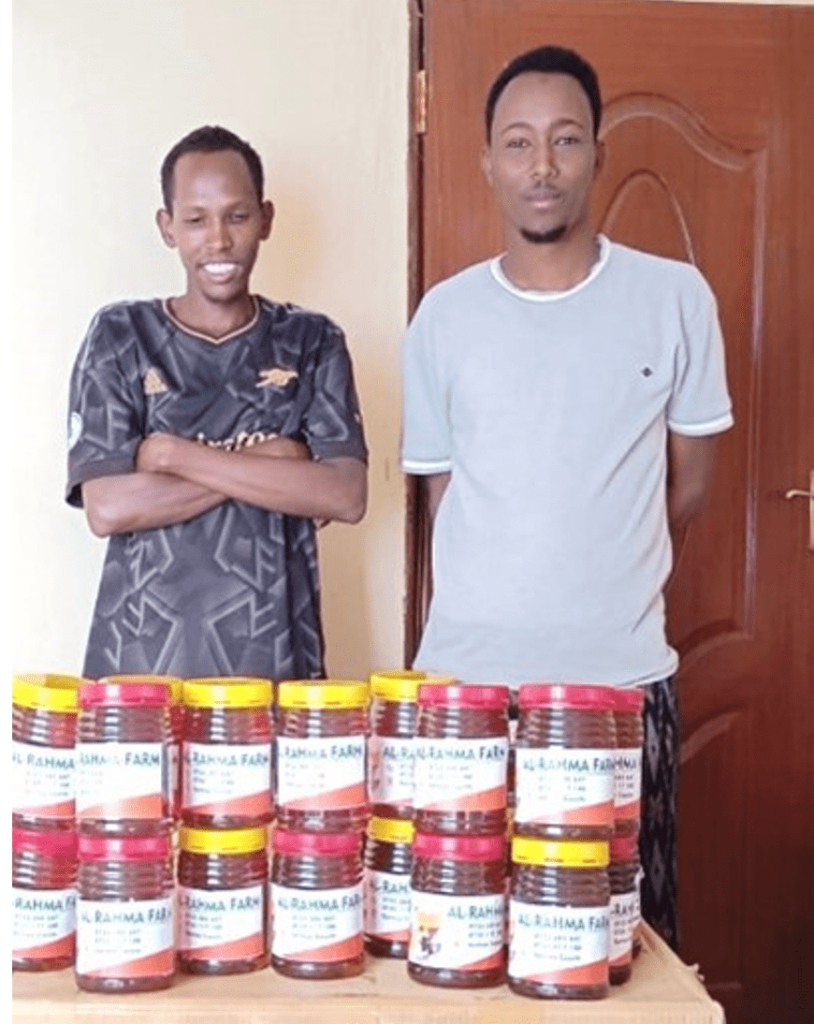
Garissa County, located in Northern Kenya, has a population of 841,353 people and is primarily inhabited by the Somali community, most of whom are pastoralists. Unfortunately, a two-year drought devastated Northern Kenya, affecting pasture and grazing lands and endangering the livelihoods of the pastoralists. According to the National Drought Management Authority, 2.5 million livestock in 23 affected counties died during the drought. Even with the return of rain, concerns persisted regarding potential hardships associated with raising livestock.
Founded in 2011 by 20 members, including eight women and 12 men, the Al Rahma Youth Group’s dream is to develop their community through sustainable agricultural practices. Unexpected hardships led them down a slightly different (but eventually prosperous) path, thanks to the support of the Feed the Future Kenya Livestock Markets Systems Activity (“the Activity”), funded by USAID.
To begin with, the group allocated 20 of its 215 acres of land to banana farming and seasonal crops, such as watermelon and tomatoes. On the remaining land, the group raised goats and planted trees near River Tana, which passes by their farm, as part of environmental conservation efforts. They earned approximately $68 per month, of which they saved $13 and reinvested the rest into their business. However, the recent drought resulted in significant livestock and food production losses. The war in Ukraine also led to inflated costs of farm inputs, compounding their challenges. As a result, they lost 13 of 20 goats, and all the crops dried up.
Faced with the daunting task of rebuilding their livelihoods, they courageously embarked on a new agricultural venture. Ahmed Salad, the group’s chair, said, “[T]he drought taught us valuable lessons on the importance of diversifying our income sources, leading us to beekeeping.”
In 2018, with savings of approximately $1,500 and funding from the World Food Programme, the group purchased bee suits, smokers (used for calming bees), and 20 langstroth hives (made of either cyprus or pine wood and coated with natural wax). The group also set aside an area near the river to enable the bees to have easy access to water. However, as first-time beekeepers, they required more skills.
In 2021, the Activity provided a grant of $28,039 to the County Government of Garissa. The purpose of the grant was to conduct advanced-level training workshops for 18 lead farmers, representing honey marketing cooperatives, producer organizations, and county department staff. Ahmed Salad was one of the farmers to complete the training.

After the training, established multiplication centers to supply beekeepers with colonies (a swarm of bees living together in a structured social unit). Meanwhile, Ahmed obtained new knowledge about hive management, inspections, apiary maintenance, proper harvesting, and security of their beekeeping area.
The grant also supported the county government’s development of a county beekeeping strategy, including translating a beekeeping manual into the Somali language. It also supported the training of 10 tutors from the Northeastern National Polytechnic in Garissa Township to initiate a beekeeping course, contributing to the skill development of future beekeepers. Finally, the funding supported the establishment of a centralized processing and packaging plant.
For the Al Rahma Youth Group, the training paid off. In 2022, they harvested 30 kilograms of honey, which they packaged and sold at $6.00 each, earning them a total of $180. By 2023, their harvest increased to 70 kilograms. This success enabled them to surpass their goal of keeping 100 hives by 2023, as they grew to 113 hives, with 70 of them actively colonized. To date, the group has also increased their membership from 20 to 40 members attracted by the group’s success.
“The training empowered us, and we were able to make a good harvest,” Ahmed said. “Were it not for the training, we would have harvested not more than five kilos of honey. We also find that beekeeping requires little supervision, allowing us to manage other aspects of the farm effectively.”

The group is now solving predator challenges for the apiary, such as monkeys, honey badgers, and dangerous insects. The journey of the Al-Rahma Youth Group — from overcoming the challenges of drought to becoming successful beekeepers and sustainable farmers—is a testament to their resilience and commitment to improving their lives and community. The group now serves as a training center for aspiring beekeepers, addressing unemployment challenges in the region.
“Beekeeping is emerging as a very successful agricultural practice for local people,” Ahmed said. “Not only does beekeeping have intrinsic health benefits, which are lacking in rural areas, but also requires few inputs and capitalizes on a ready supply of pollen.”
In the six counties where the Activity operates, USAID has channeled over $2 million in grants to 334 small and medium enterprises, helping low-income families diversify their livelihoods, build resilience, and increase their incomes. By targeting youth and women, the Activity helps households establish lasting routes out of poverty and inclusive economic growth.
Learn more about the Activity.
Learn more about our work in Kenya.








